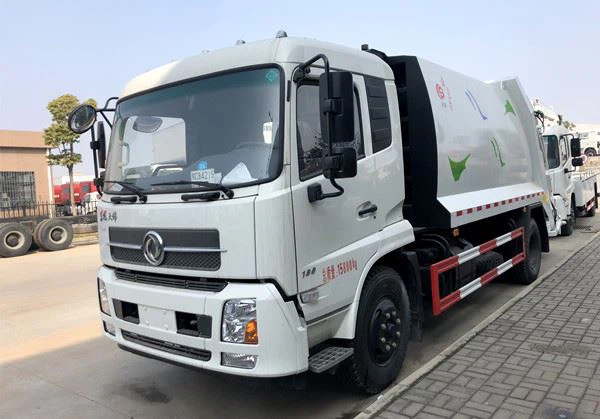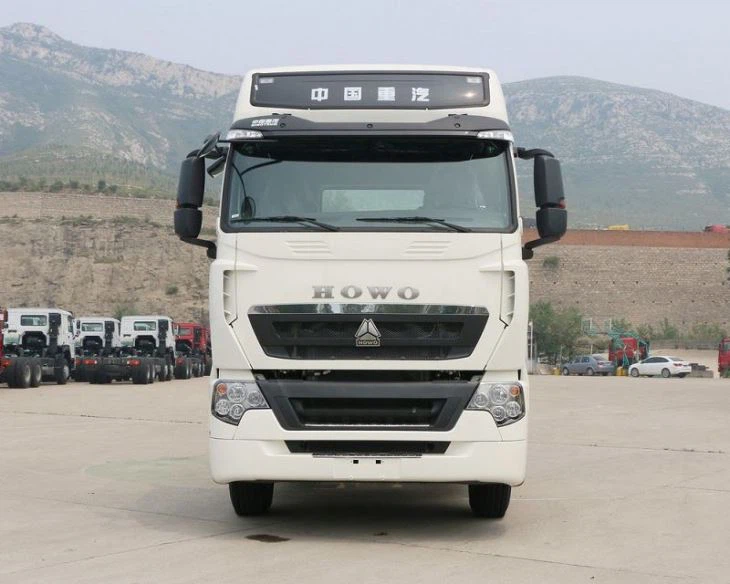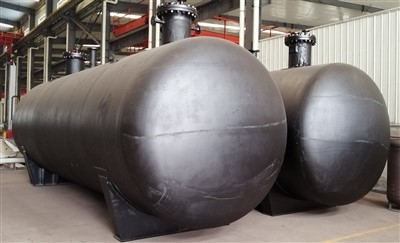Understanding Gasoline Tanker Trucks: Features, Uses, and Safety Considerations

Gasoline tanker trucks are specialized vehicles designed for the transportation of gasoline and other petroleum products. These trucks play a crucial role in the fuel supply chain, ensuring that gas stations and businesses receive timely deliveries. In this comprehensive article, we will delve into everything you need to know about gasoline tanker trucks, including their design, operation, safety regulations, and more.
What is a Gasoline Tanker Truck?
A gasoline tanker truck is a large vehicle equipped with a tank specifically designed for transporting liquid petroleum products, primarily gasoline. These trucks have a unique structure that allows them to carry large volumes of fuel safely over long distances. The tank is usually made of high-grade steel or aluminum to withstand the corrosive nature of gasoline.
Components of a Gasoline Tanker Truck
Understanding the components of a gasoline tanker truck is crucial for grasping how they operate and the safety features they entail.
- Tank: The primary feature, which is cylindrical and designed to minimize sloshing, is typically insulated and equipped with internal baffles.
- Chassis: A robust framework that supports the weight of the tank and cargo.
- Pump System: Used to unload gasoline from the tank at delivery points. It often includes metering devices to ensure accurate dispensing.
- Valves and Hoses: Essential for controlling fuel flow and preventing leaks during loading and unloading.
- Safety Devices: Emergency shut-off valves, grounding systems, and spill containers to prevent accidents.
The Importance of Gasoline Tanker Trucks
Gasoline tanker trucks are vital to the economy, as they ensure the continuous supply of fuel to various sectors. They serve numerous purposes that make them indispensable in today’s transportation and logistics landscape.
Supporting the Fuel Supply Chain
These trucks transport gasoline from refineries to distributors and retail gas stations. By maintaining an efficient supply chain, they help stabilize fuel prices and availability in the market.
Transporting Other Petroleum Products
Besides gasoline, tanker trucks sometimes transport diesel, jet fuel, and other petroleum products, making them versatile in the oil and gas industry.
Features of Gasoline Tanker Trucks
Gasoline tanker trucks come equipped with unique features that enhance their safety, efficiency, and usability.
Design and Construction
Most gasoline tanker trucks are constructed with the following considerations:
- Material: High-strength steel or aluminum for durability and corrosion resistance.
- Shape: A cylindrical shape minimizes turbulence and keeps the load stable during transit.
- Baffles: Internal separators reduce slosh effects, enhancing vehicle stability.
Safety Mechanisms
Safety is paramount when transporting hazardous materials like gasoline. Key safety features include:
- Emergency Valves: Automatically shut off fuel flow in emergencies, preventing spills.
- Explosive Risk Mitigation: Grounding systems to prevent static electricity from igniting flammable vapors.
- Spill Containment: Tanks designed to contain spills in case of leaks or accidents.
Operational Guidelines for Gasoline Tanker Trucks

Operating a gasoline tanker truck requires adherence to strict guidelines to ensure safety and compliance with state and federal laws.
Driver Qualifications
Drivers operating gasoline tanker trucks must meet specific qualifications:
- Commercial Driver’s License (CDL): Required to operate heavy trucks and to transport hazardous materials.
- Special Endorsements: Additional certifications may be necessary for handling flammable liquids.
Loading and Unloading Procedures
Here are steps to follow during loading and unloading:
- Inspect the truck and loading equipment for damages or leaks.
- Ensure that all valves and hoses are properly connected.
- Ground the truck to prevent static buildup.
- Follow specific company protocols for loading and unloading fuel.
Regulatory Compliance and Safety Standards
Gasoline tanker trucks must comply with various regulations governing their operation to protect public safety and the environment.
Federal and State Regulations
In the United States, the following entities set forth regulations:
- Environmental Protection Agency (EPA): Ensures compliance with environmental laws regarding fuel emissions and spills.
- Department of Transportation (DOT): Regulates the transport of hazardous materials, including gasoline.
International Safety Standards
For companies operating globally, compliance with international standards such as the International Maritime Organization (IMO) and the Interstate Commerce Commission (ICC) is essential.
Common Challenges and Solutions in Tanker Truck Operations
While gasoline tanker trucks are crucial for fuel transportation, operators face several challenges that require innovative solutions.
Spill Prevention and Management

Spills can have disastrous consequences. Here are tips to minimize risks:
- Regularly inspect and maintain tanks and equipment.
- Implement rigorous training for drivers on spill response procedures.
- Utilize modern technology for real-time monitoring of fuel levels and potential leaks.
Traffic and Transportation Issues
Heavy tanker trucks can face delays due to traffic. Operators can mitigate this by:
- Using route planning software to identify the quickest and safest routes.
- Scheduling deliveries during off-peak hours to minimize traffic impacts.
The Future of Gasoline Tanker Trucks
The transportation industry is evolving rapidly, and gasoline tanker trucks are not immune to these changes. Emerging technologies and regulatory frameworks are shaping their future.
Electric and Hydrogen Fuel Alternatives
With the growing emphasis on sustainability, electric and hydrogen fuel technologies are being explored as alternatives for gasoline transportation.
Adoption of Advanced Technologies
Digital technologies, such as GPS tracking and IoT sensors, are being increasingly adopted for better tracking and safety management. These innovations are streamlining operations and enhancing safety.
Practical Examples and Tips for Tanker Truck Operations
Real-life Example: Successful Fuel Transport
A major fuel supplier in California recently implemented a route optimization software that reduced delivery times by 30%. This not only improved customer satisfaction but also decreased fuel consumption, resulting in cost savings.
Tips for New Operators
- Invest in high-quality training for drivers focusing on safety and emergency procedures.
- Regularly conduct maintenance checks on tanks and delivery systems.
- Stay updated with regulatory changes to ensure compliance at all times.

Frequently Asked Questions (FAQs)
What are the typical sizes of gasoline tanker trucks?
Gasoline tanker trucks typically range from 5,000 to 11,000 gallons. However, the size can vary based on the regulations of different regions.
How often should a gasoline tanker truck be inspected?
Regular inspections are crucial. It’s recommended to inspect the truck before and after every route and have detailed inspections at least once a year.
What safety measures are in place for gas delivery drivers?
Gasoline delivery drivers undergo extensive training on handling fuel safely, including using personal protective equipment (PPE) and understanding emergency procedures.
Are there specific insurance requirements for gasoline tanker trucks?
Yes, operators are required to have insurance that specifically covers hazardous materials and liability in case of spills or accidents.
What are the environmental impacts of gasoline tanker trucks?
Gasoline tanker trucks can pose risks such as spills, air pollution from emissions, and potential accidents that may lead to environmental damage. Compliance with safety regulations aims to minimize these risks.
Can gasoline tanker trucks operate in all weather conditions?
While gasoline tanker trucks can operate in various weather conditions, extreme weather may require reductions in speed and routing adjustments to ensure safety.
